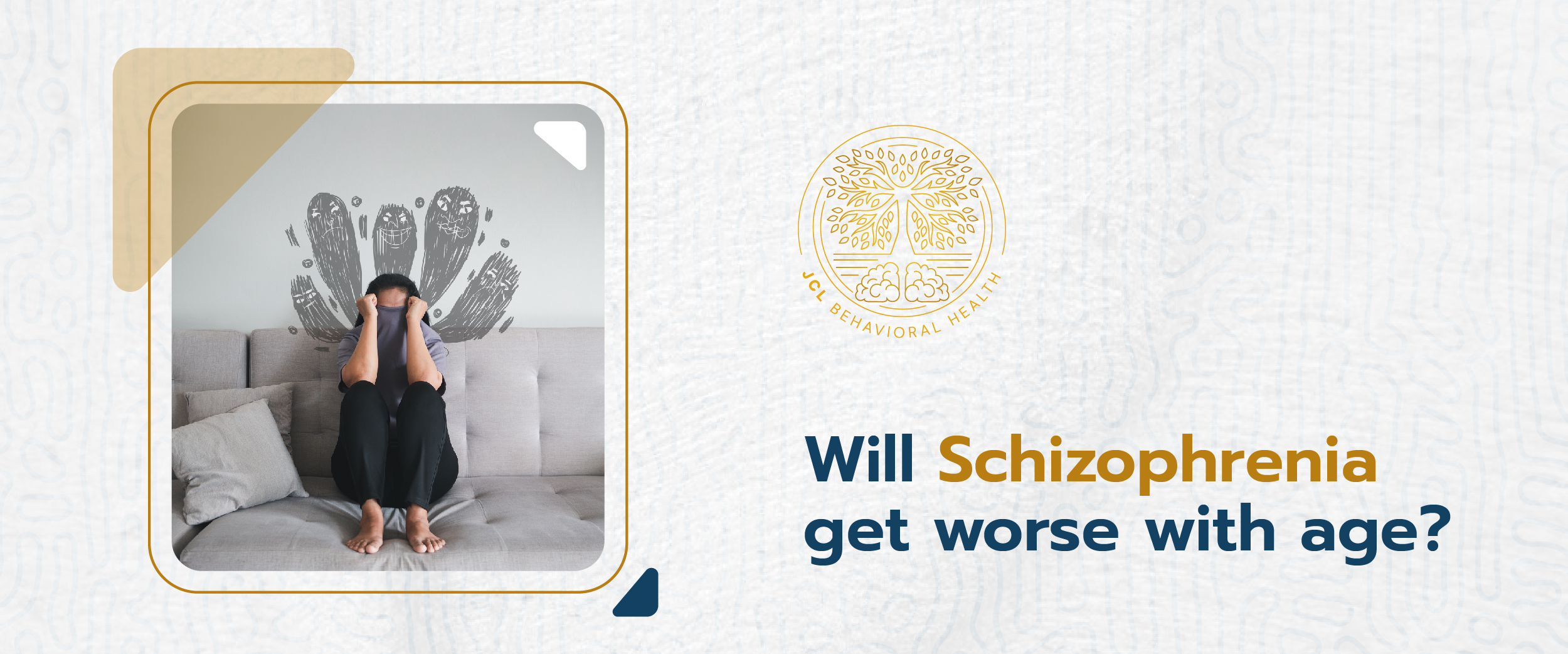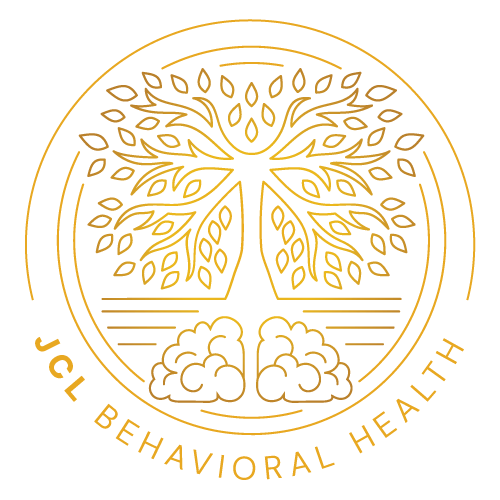Will Schizophrenia Get Worse with Age? – JCL
Schizophrenia is a long-term brain condition that changes how a person thinks, feels, and acts.
Plenty of people ask, “Will schizophrenia get worse with age?”
This question is huge for those living with the condition and their families.
Let’s explore the progression of schizophrenia in this blog. We’ll understand its influencing factors and learn effective ways to manage its symptoms over time.
What is Schizophrenia?
Schizophrenia is a significant mental condition. It’s known for episodes of psychosis, like seeing things that aren’t there, false beliefs, and disorganized thoughts.
Schizophrenia usually shows up in the later teenage years or early adulthood but it can appear at any stage.
Symptoms of Schizophrenia
Let’s talk about the signs of schizophrenia. They fall into three groups: positive, negative, and cognitive.
- Positive symptoms might involve: Hearing things that aren’t there, unrealistic beliefs, and confused thinking.
- Negative symptoms could encompass: A mute emotional display, little drive, and distancing from friends.
- And the cognitive symptoms can be: Memory troubles, lack of focus and trouble making decisions.
Will Schizophrenia Get Worse with Age?
The Natural Course of Schizophrenia
The course of schizophrenia can be different for everyone. For some, these symptoms may get worse and more frequent over time. But others might see their symptoms stay the same or even lessen as they grow older.
What Influences the Progression
A few things might influence if schizophrenia will get worse with age:
- Early Diagnosis and Treatment: Spotting schizophrenia early and getting care helps make the future look better.
- Medication Adherence: It’s key to keep taking the medicine the doctor prescribed you. This helps to control the symptoms and prevent a relapse.
- Support Systems: A robust network of family and friends can greatly assist in handling the condition.
- Making the Right Choices: Habits such as daily workouts, eating right, and steering clear of drugs have a positive impact on the progress of the disease.
Treatment and Management
Medications
For treating schizophrenia, antipsychotic medications are vital. They keep symptoms in check and avoid relapses.
It’s important for patients to align closely with their health caregivers to discover the most suitable medicine and dosage.
Psychotherapy
Different types of psychotherapy can help schizophrenia sufferers.
- Cognitive behavioral therapy (CBT) assists in confronting and altering harmful thoughts and actions.
- Family therapy gathers the family in therapy to furnish support and boost communication.
- Social skills training educates on necessary social and everyday life skills to uplift independence.
Lifestyle and Self-Care
Good habits make schizophrenia easier to handle. Living well with schizophrenia means:
- Regular Movement: Exercising helps lift mood and health.
- Healthy Eating: Eating right nurtures the brain and lowers medication side effects.
- Rest: Good sleep routines steady mood and thinking.
Monitoring and Adjusting Treatment
Regular Health Check-ins
Regular healthcare provider visits keep track of treatment results and allows for changes when needed
Medication Management
People with schizophrenia often need different medicines throughout their lives. A psychiatrist can help make these adjustments safely.
Long-Term Outlook
Aging and Schizophrenia
Some people with schizophrenia find their symptoms lessen as they get older. Yet, others find theirs get worse. The aging process itself can introduce additional health issues that interact with schizophrenia—it can be cognitive decline or physical illnesses.
Research and Future Directions
Research keeps trying to understand schizophrenia better. It looks for why it happens, how it changes over time, and best ways to treat it. With new science leaps, better treatments, and results could come for those dealing with this disorder.
Conclusion
So, “Does schizophrenia get worse with age?” It depends. Each person experiences it differently. The earlier you intervene and the more regularly you treat it, the better the chance to manage it well.
Strong relationships also help. If schizophrenia is part of your life or a loved one’s, reach out for professional help.
JCL Behavioral Health is here for you. We provide full care for those with mental health challenges. Get in touch with us now. Let us guide you towards better mental health.
FAQs
How long does someone with schizophrenia live?
While schizophrenia often leads to a shorter life expectancy due to other health issues like heart disease, diabetes, and respiratory problems, it’s not always grim.
With the right treatment, living a healthy lifestyle, and regular doctor visits, a person with schizophrenia can greatly better their life and live longer.
Can schizophrenia get better?
It can. With the right treatment and help, it is possible. Though a long-term illness, many people go through periods when they are almost symptom-free.
Regular medication, therapy, and good support from friends and family are key to managing symptoms and boosting overall well-being.
What causes schizophrenia to get worse?
Schizophrenia symptoms might get worse due to various reasons.
- Not following treatment: If you skip your meds or therapy meetings, symptoms may return or worsen.
- Substance abuse: Drugs or alcohol can make symptoms worse and mess up your treatment.
- Not having support: Support can also be important. If you’re alone and have no emotional support, that can harm your mental health.
- Other health problems: If you have other mental or physical conditions, dealing with schizophrenia can get tricky.
Is it safe to live with a schizophrenic?
Surely, as long as they’re getting the right treatment and support. Creating an understanding and supportive environment matters. Being knowledgeable about their condition and being open in communication, helps handle any problems that might show up.
Does schizophrenia go away?
It’s a lifelong disorder. Some people, though, can manage symptoms or perhaps not have them for short spans. Treatment helps people with schizophrenia live satisfying lives.
Does schizophrenia get worse without medication?
Yes, without medication, there’s a higher chance of worsening symptoms. Antipsychotic medicine helps control symptoms and stops them from coming back. It’s really important for people to follow doctors’ advice on prescribed treatment to keep their life stable.
Does schizophrenia get worse with stress?
Sure, stress can worsen symptoms of schizophrenia. It can cause hallucinations, false beliefs, and disorganized thoughts. Having healthy habits to deal with stress, going to therapy, and having a helpful surrounding is a must for people with schizophrenia.




No comment